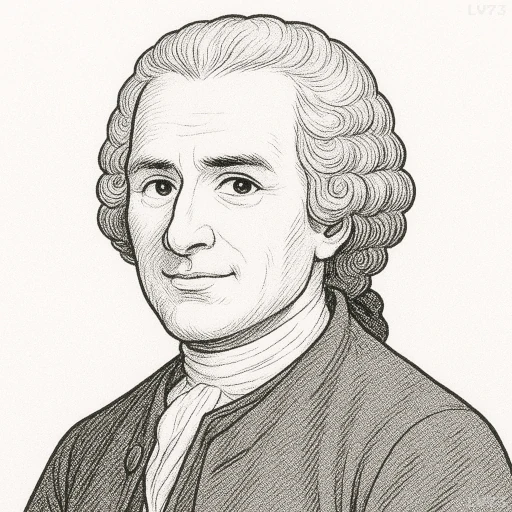“Our will is always for our own good, but we do not always see what that is.”

- June 28, 1712 – July 2, 1778
- Born in Geneva
- Philosopher, political philosopher, writer, composer
table of contents
Quote
“Our will is always for our own good, but we do not always see what that is.”
Explanation
In this quote, Jean-Jacques Rousseau reflects on the nature of human will and desire. He argues that, at its core, every person desires what is ultimately best for them, but due to limited understanding or misguided judgment, they often fail to recognize what that truly is. Rousseau suggests that while our intentions are generally aligned with our self-interest and well-being, our ability to perceive what is genuinely good for us is often clouded by short-term desires, emotions, or external influences. This gap between true self-interest and our ability to recognize it highlights the complexity of human nature and the struggle between immediate gratification and long-term fulfillment.
Historically, Rousseau’s view on human will and its limitations aligns with his broader critique of society and human nature. He believed that humans are born with an innate goodness, but that the structures of civilization and social conditioning distort their understanding of what is truly in their best interest. For Rousseau, self-awareness and education are key to overcoming these distortions and reconnecting with what is truly good for individuals. He believed that society often encourages behaviors that are contrary to genuine well-being, leading people to pursue goals that may feel satisfying in the short term but are ultimately harmful in the long run.
In modern times, Rousseau’s insight resonates with discussions around mental health, personal development, and consumer culture. Many individuals today may struggle to distinguish between instant gratification and decisions that lead to long-term happiness or well-being. The pressures of society, media, or even personal insecurity can make it difficult to see what is truly in our best interest. Rousseau’s quote serves as a reminder to be mindful of the distortions in our thinking and to cultivate a deeper understanding of what constitutes real happiness and self-care. It encourages reflection on how we can better align our actions with our true well-being, acknowledging that the pursuit of instant pleasures may often cloud our judgment and prevent us from seeing what is best for us in the long run.
Would you like to share your impressions or related stories about this quote in the comments section?
